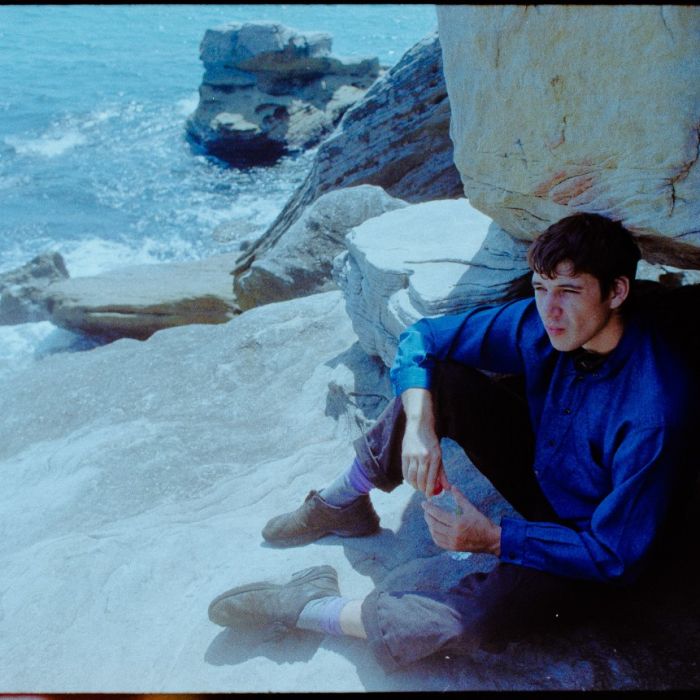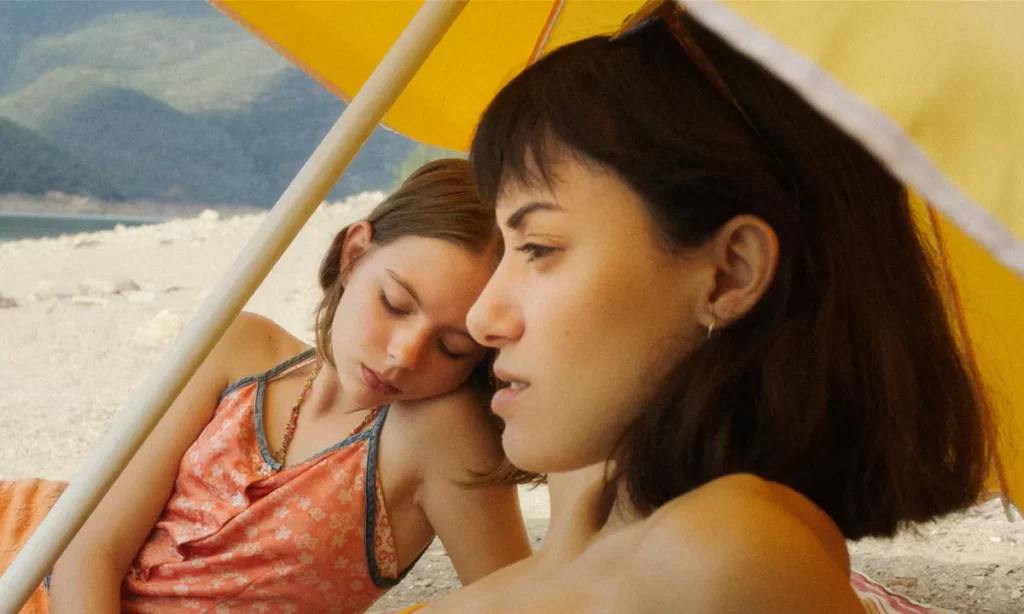James Vaughan’s directorial debut Friends and Strangers has been immediately embraced by the international film community, with the film receiving nominations for Best New Film at the Beijing International Film Festival, Best Film at the Cinema Jove – Valencia International Film Festival, the Tiger Award at the Rotterdam International Film Festival, and winning the Special Jury Prize at the Jeonju Film Festival, where the film was also nominated for the Grand Prize. Vaughan also received a nomination for Best Editing in Film at the 2021 AACTA Awards.
Friends and Strangers screens at Screenwave International Film Festival on April 26th and 29th. Tickets available here.
You’re a bit of a rarity in the sense that you ended up on the Sight and Sound Top 50 Films of 2021 poll, which doesn’t tend to happen for Australian films, let alone for emerging filmmakers. What was that like for you? What did that do to your mind?
James Vaughan: Scrambled my mind. It was already scrambled, and scrambled further. But yeah, no, it was obviously amazing to wake up to that on whatever day that was. I didn’t quite believe it, and I had to go and look through in detail. I thought they had made a mistake. Because, as you said, it’s just not on our radar at all. It wasn’t something we expected.
They break it down, which critics have put you in there. And I guess I had had contact with some of those critics, like a lot of them. And I guess the whole list is dominated by American and British critics and I had heard from some of them saying they love the film. Probably at the time, I didn’t realise how influential maybe some of those critics actually were, the fact that they were in that group of people being consulted. Because they were hardly any Australian critics who were invited to participate in that. It was such an honour and so, so special.
Your mind runs in all sorts of places with these sorts of things. Knowing that the Australian release was coming up, we hoped that it might help that in a way. And it probably has helped us in our in our promo and everything too, some local critics maybe sitting up and noticing. Or if they’d seen it and maybe noticed it, but then it had gone out of their heads later. Coming back with the Australian release, coming out through the press release, maybe just helping jog people’s memory of the film a little bit. I don’t know. It’s all just speculation, but I guess in the end, if it’s helping us get the word out there about the film, then it’s a good thing. And it definitely did that.
There was the Rotterdam Film Festival which had a release which is a pretty prestigious festival. To me, the film feels very European in style and tone. And it feels like the European audiences might be a little bit more receptive to that. Was it made with a European audience in mind? Or was it made with an Australian audience in mind, or a bit of in between?
JV: I don’t want this to be a kind of trite answer, but I probably wasn’t thinking about any audience when I was making the film. I set out to make a film that I really wanted to make, the kind of film that I would want to see if I was going to see an Australian film. And [I was] frustrated for years with just how parochial Australian cinema tends to be, and often talking big about how great it is, but not particularly engaged with the rest of the world, outside of some parts of Hollywood and that sort of thing.
It wasn’t so much thinking about, “Oh I want Australians or Europeans to like this,” even though definitely Australian audiences – if I had to pick an audience that I felt this is important for, it would be Australians. Because for me, it is trying to probe into some questions about us and our culture. So in that sense, if there was a social function or anything like that that was bigger than just me and what I wanted to do, it would be for the Australian audience.
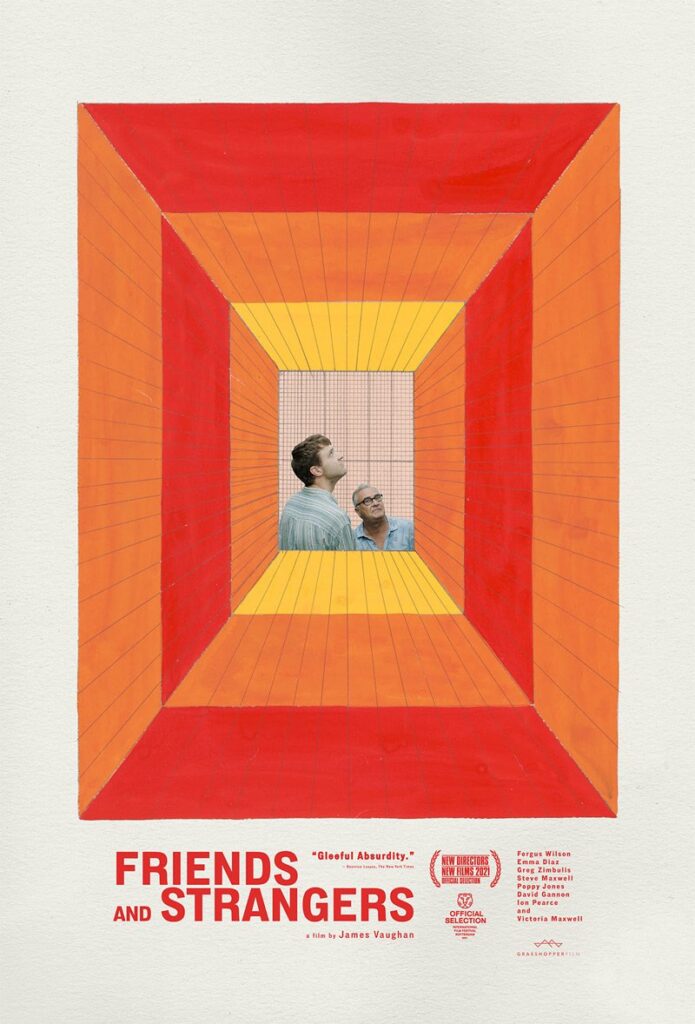
But it wasn’t really part of the motivation, I have to say, for making the film. And that’s the beautiful thing about funding something yourself. You can just do whatever the hell you want to do, and not have to worry about audience metrics and projections and these things, which I think are the scourge of funding systems in Australia and don’t help us make good films. They produce films that are risk-averse, formulaic, and out of touch with the new trends and new artistic directions that are constantly being explored overseas that we are choosing a lot of the time to separate ourselves from. Not having to bow to that was awesome.
I have noticed this trend with indie filmmakers in Australia to really push against what an Australian film is. It’s really comforting to see filmmakers like yourself, and then you’ve got people who you’re working alongside who are friends, collaborators in some capacity like Ted [Wilson], like Amiel [Courtin-Wilson], like Alena [Lodkina], who have all made really fascinating films that push against what an Australian film could be and actually interrogate what the Australian identity is on screen. What’s it like working alongside those people are having those kinds of creative people as your friends, as your colleagues in the film industry?
JV: It’s really beautiful to have those relationships because it can be very lonely at times when you’re self-funding something and being told by institutions that what you’re doing is wrong or not going to be liked, or not what audiences want to see. If you don’t have those people who are like-minded who share some of your values and share some creative aesthetic sympathies, I don’t know, probably for all of us in different ways, we might have dropped out. I can only really speak for myself.
But I think meeting Amiel at a certain point around 2012 after I’d finished film school was really important because he was someone who I had huge respect for before I even knew him and before even seeing his work. Just seeing the trailer for Hail which was about to come out, within a few seconds of that trailer starting, this was someone who wasn’t playing by other people’s rules and was doing something – whatever you think of the film – was really passionately doing something his way and for reasons that I think are not just self-indulgent reasons. They are reasons that are trying to get at something deeper that are politically or socially or artistically important to him.
The other thing too [was] someone really prepared to make sacrifices to do that. Seeing someone like that, in that sort of half generation ahead was so inspiring for me and showed that yeah, this is a path that is worth. I think if I hadn’t had that, it might have been like, maybe I’m crazy. Maybe I’m just out of film school and wanting to do my own thing but wasn’t inspired by a lot of the Australian films from the last twenty odd years. Maybe there’s something wrong with me. Maybe I’ve got something different I want to do, but maybe that’s really silly. Surely there would be other people doing it if it was true.
Not that like Ted, Alena, and Amiel are the only ones. There are so many. But they were just the ones I guess that in different ways I’ve been lucky to get close to and become close friends with. It’s so important having those links, because you can discuss ideas and also just discuss strategies about how to move ahead with things which is so important too, because there are so many barriers.
What kind of discussions do you have? Do you talk about the current state of Australian film? It seems like such a kind of heavy thing to discuss and explore and very arty in a lot of ways. But I guess as somebody who sits on this side, talking about Australian film, writing about Australian film, part of me really hopes that you are sitting there going, “We want to change it” and have those kinds of discussions.
JV: You know, I love Australian film, too. And I feel part of what Australian cinema is. So I don’t want to present myself or any of the other people I’ve mentioned as sort of like anti-Australian cinema or whatever. I’m only making that point because I think sometimes that’s the reflex too. If you’re critical or want to improve something – you know, the political equivalent is like you’re unAustralian or you’re not patriotic. Not that it’s totally parallel, but often the criticism that’s made of people on the left is that they don’t love their country. And by criticising something, you’re showing a lack of unity and all these sorts of things.
I really reject that. I think it comes from a love of Australian cinema and where it has been in periods in the past, and where it can be again that’s motivating a lot of this.
In terms of the discussions that we have, I guess it’s a big mix. Each of my relationships with each of those people you mentioned, they’re all different. Some are more strategic and all the institutional stuff, approaches to making a project for nothing, or purely creative discussions about films and ideas for films we’ve seen and loved, or ideas for new films, that sort of thing too, down to sharing links to possible opportunities to find money for grant programs or small amounts of arts funding.
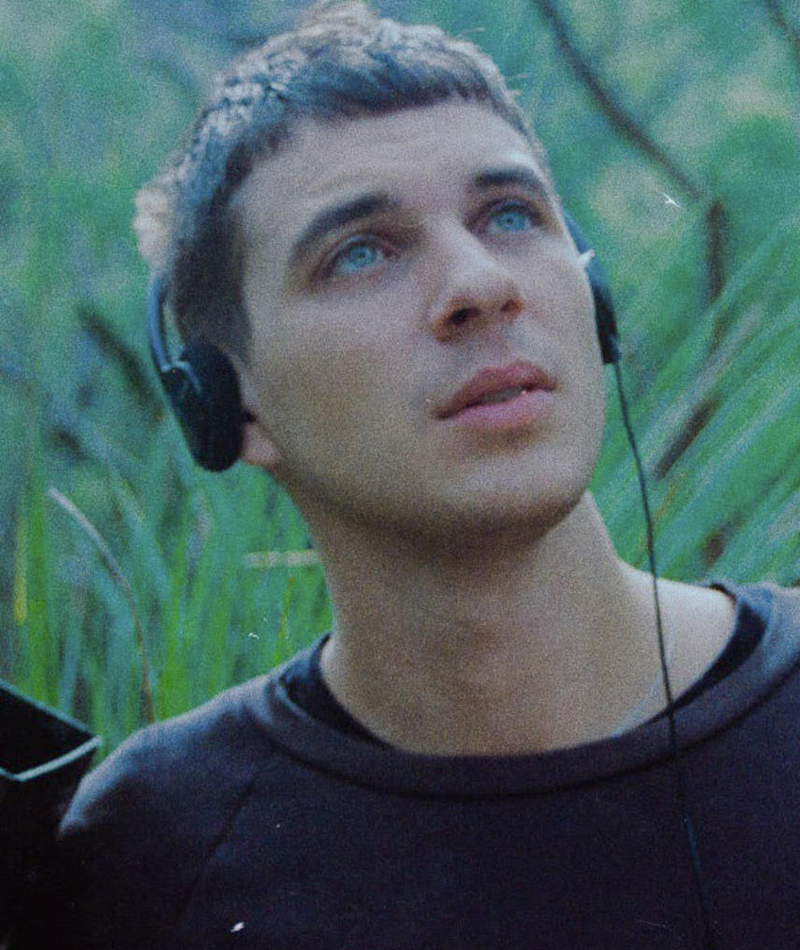
But I really stopped doing that sort of thing. I spent a few years going hard at that and just came up empty-handed again and again. It’s hard enough just not getting the money because you obviously are asking for it because you feel like you need it to do what you want to do. And there’s also so many worthy applicants so you can never feel entitled to these things. But it’s the time you spend doing them that becomes the big tax on your creativity. Already you’re self-funding to a large degree, so a lot of your time is going to working so that you can eventually make something. If you’re also putting the limited amount of spare time you have into these funding grants, that was starting to get me down too. It was almost like a mental health thing.
I completely self-funded Friends and Strangers because it’s like, yes, it’s going to be horrible finding all that money and working for it. But at least then it’s something I can control and set a timeline on, work out how quickly I’m saving and just start to be able to manage the years at it, rather than these false hopes of putting in this big application and hoping fingers crossed we get that, then we can start shooting next year. And then when you don’t, you feel like your little sandcastle has been smashed by a wave, and you’re back to square one. So yeah, I guess all kinds of conversations, anything you could imagine to do with the making of a film or the genesis and development of an idea is the stuff you end up talking about.
I like the first part to the answer of that question. Because that leads into something that I found with Friends and Strangers which I found really fascinating. It’s this kernel of the idea that modern Australians have been neglected by the treatment of the First Nations people of the past. As such, we almost feel like we are adrift in a country that is still really struggling to find a cultural identity. And that’s what certainly I got from the film of seeing Ray just wandering through, trying to find his place in the world. There is a sense of neglect there for the First Nations people who obviously aren’t present in the film, but we feel their absence so distinctly because of the manner that the previous generations have treated them. Is that something you can talk about in the conscious decision to bookend the film in such a colonial manner to present the colonial roots there and then say, “This is the land that this particular film was made on”?
JV: It’s a great question. The only challenge I’d make to the premise of the question would be that I don’t think our generation currently is off the hook, either. I feel like if genocide was begun by the very first white people that landed here, it continues up to this day. Yes, we inherit the consequences of it and in some ways, it becomes harder and harder to go back and atone. You can’t atone for what happened, but to at least confront more honestly the reality of what happened. It does get harder and harder the longer you look away from it and ignore it.
And we’re at a point now where we have so many people that grow up in our cities who don’t meet First Nations people or if they do, it’s a very rare thing. For me, I grew up on the north shore in Sydney, went to a private school which is its own very particular subsection of Sydney, but also not one that is tiny. In the north shores, it’s huge, huge numbers of people, hundreds of thousands, if not more than more than a million people – I don’t know how many – in that extended zone of the city, but dominated by private schools, Catholic religious schools, and independent schools. And south of Sydney, Western Sydney, different story.
But up there, it’s been a place of privilege and separation from First Nations history even though it exists on a place of profound First Nations history. There’s an artificial separation of white culture from its origins here as a colony. Separation from the reality of how the colony began, but very much still connected to those origins, which always was a project of dispossession. And so as you mentioned in the question, the decision to bookend it with those colonial references just seemed to me apt, not only to tie in with the colonial aspects or the matters of racial history and politics here, but in a more general sense, as a way of positioning Sydney in touch with its own history in a full sense.
I did want the film to be a reflection on Australia, where it’s going, and you can’t look at where something’s going without seeing where it’s come from. It is very much embedded in Sydney’s details in a contemporary sense. But you can’t really explore those things without it being holistic. And just having those few moments, whether it’s lingering on a statue or something that’s been there for 150 years, or including these watercolours that have been there for close to 250 years – these are reminders that cities don’t just exist. They’re not something to take for granted. They have their own history of development and a peculiar history, in the case of Australian cities.
And I think when you see how something happened, it helps to maybe think about how it could be different. It’s not just like something we have to accept. Not that the film, I think, gives any answers or comes close to even trying to give answers to these things. I’m hoping that the film prompts [people] to think, just to take a step back and look at some of the things we assume about the present.
How do you feel as a filmmaker not being able to present an answer to the question that you’re proposing? I know a lot of people might feel either angry or disappointed that the film doesn’t seek to answer those questions. But instead to me, it encourages the audience to go out and discuss those things. And certainly, for me, I sat down and wrote a whole list of things that I feel that the film is saying and wants us to ask. But what does that do for you as somebody who’s sitting there writing and making this film to not have those answers there?
JV: I don’t know the answers to things. And I probably don’t like films that present answers to things because I don’t think any serious question about life has a clear answer. The best we can do is ask better questions, and that’s what philosophy is about. That’s what science is about. That’s what politics is about. There’s no city-state or political organisational grouping that’s ever found the final answer to anything. Questions provoke new questions. Whether you make progress sometimes remains a mystery.
I guess I like films in general that seem to start from that point of acknowledging that life is a mystery. And in one way or another, I start from that point, and move from there in and out of moments of revelation or insights, and then back into a sense of questioning or confusion or nihilism or whatever. I’m interested in those films that present knowledge itself as something elusive. The less critical you are of things, the easier it is to feel like you ever do know the answer.
A lot of films do try and wrap things up in a way, or point towards ‘this is the way’, ‘this is the direction forward’. That’s important too, and I’d say particularly with committed political or militant political filmmaking, that’s just part and parcel with it, ‘This is right’, ‘this is wrong’. I can’t say I’m a connoisseur of that sort of cinema. Sometimes I watch things and, even when its subject matter is expressly political, I still probably prefer to watch something that presents information in an interesting and ordered and clear way and does let you maybe make your own conclusions rather than things that are really telling you what’s right and wrong from the outset.
But all that said, I do know that often audiences want you to plant your flag somewhere and point in the direction, make the message clear. And the message in inverted commas is something that makes me cringe really hard, the question of “what’s the message of the film”, or “well done, you succeeded, the message came across”. I just don’t like it when art is reduced to a telegram or something, a few lines that you can summarise and everything is just this padding around pushing this straight arrow message at the person’s brain. I feel like art should be about questions and not answers. But that’s not for everyone.
And I guess entertainment too is another tricky word. And I like entertainment. I went and saw The Batman last night and really enjoyed it. And I like Marvel movies, or some of them anyway. There’s a lot of mainstream cinema I really like. I don’t watch much television, but I’m not anti-entertainment either. But I think what cinema suffers from a little bit in Australia is the assumption that it is only entertainment. That if it has any other value, it’s political, but its status as an art form is sort of assumed away often. And it’s probably the only art form in Australia that suffers from that.
You can have airplane novels and everyone acknowledges that, but everyone also knows that a novel can be a serious art form. Whereas at least in the way things get funded and distributed and exhibited here, the art aspect is assumed away most of the time, and you have to really fight to even just get it acknowledged that it can be an art form, which is another thing that I find hugely frustrating. It’s not me saying “Banish all the rest and, you know, cinema is art and art only.” But there’s no single little space for it.
There are spaces for it. But in terms of getting things funded at the top, top level, it doesn’t feel like there are. I think there does need to be some changes there. Because you can’t get things funded. Australian Council for the Arts, if you’re theatre, music, performance, dance, everything has a place. At AusCA, except film. They say “Go, we have dedicated agencies for you,” and then you go and pitch a project and they say, “No, we don’t fund that kind of thing. That’s something else, you got to go and get an arts grant.” So that’s a problem.
The good thing about that is there’s an easy solution, it’s a kind of administrative adjustment. But it does take some kind of belief or sympathy for the idea that film is an art form too and that that has a place not just for the people working and wanting to do that, but that our country and our culture can benefit from the contribution of cinema to some of these questions about identity and our future.
Exactly. And it’s one of the things which I’ve found sad and frustrating as well. A film costs a lot to get up off the ground, and so inevitably what happens is we have a generation or a group of first-time filmmakers who never make a second film because they’re still paying off their first one. I’d love to see Ted’s next film, but who knows, he’s still got to pay off Under the Cover of Cloud. It’s frustrating. He’s made a really powerful film there, and I want to see what he does again. And so that continuation comes back to what you’re saying that the funding bodies – we need to have a better process to allow these kinds of films to exist.
In America, it’s a little bit different. In the UK, it’s a little bit different. But in Australia, I find at least from my perspective, that we still look at box office as a determining factor of a film’s success and not the cultural footprint or the critical reception or anything like that. And that’s frustrating. We should have generations of filmmakers who have had second films who have been able to tell their stories and do what they want to do.
JV: Yes, and third, fourth, fifth films too, people that have a lifetime of things that they’d like to explore – I’m repeating myself here – but not just for themselves, but a sense of engagement with the culture they’re a part of. And those are the things that future generations I think really look back on and thank. We don’t look back at the Seventies and we’re not just glad for the television that entertained people at that time, we’re glad for the serious work works of art from that period. They’re the ones that help us figure out who we are and where we’re going and these bigger things, even if they’re not always the most impactful things at the time. They are the things that stay with us. We could kind of go on about that. Change is possible.
There is this really fascinating thread of the connection to country in the film here that is accentuated by two points. One where the young girl who Ray and Alice meet at the beginning of the film, she talks about the country that has been covered in weeds and trash. And then one of the closing moments that we get to see in the film is a coin just sitting in the water. And it feels to me like the white colonial connection to country is there. It’s become dominant and it’s inescapable. And all it is, is just trash, weeds, and disposed currency that we can’t even use properly. I’m curious if you can talk about that, that connection to country that you have in the film?
JV: There are so many ways I could answer this. I think part of me is a visceral sense of disappointment or something, looking at our – and it’s not just Australian things, you know. It’s homogenised global capitalist developments, where you find the cheapest materials from whatever part of the world you can get them, and find the most efficient or a strange definition of efficient, but the cheapest way of achieving some goal. And if that’s moving people who want to get from Sydney to Adelaide, then it’s the straightest road with the most number of lanes and the biggest airport that gets people going back and forth.
Thoughts of how that system will work in ten years’ time, or twenty years’ time don’t really matter. Thoughts of how it looks and how it sounds and how it smells and things like that don’t matter. Even though when we look at old places, the places that are the most beautiful places to us – and the world seems to agree on what those places are – these ancient cities or even older historic capitals, they’re the places that are built holistically and they fit the ideas that how something looks, smells, and feels, and how it’s experienced are as important as anything else. It’s just a shallowness to how we develop things now.
Being someone that’s done a bit of driving around New South Wales and Australia in general, I do get sad just looking at how monotonous and degraded a lot of the parts of the country that have had very heavy human white development or just use, whether it’s agricultural or infrastructure or whatever, how dirty and sad a lot of those spaces are, the sides of highways, the toilets that you use at a rest stop, at a service station, at a camp caravan park. Not that these are inherently bad places, but anything that’s not someone’s personal private store of wealth being their house is extremely vulnerable in Australia to just a profound ugliness. Which I think says a lot about not just who we are generationally, but some of the broader political economic paradigms that we’re currently seemingly trapped within.
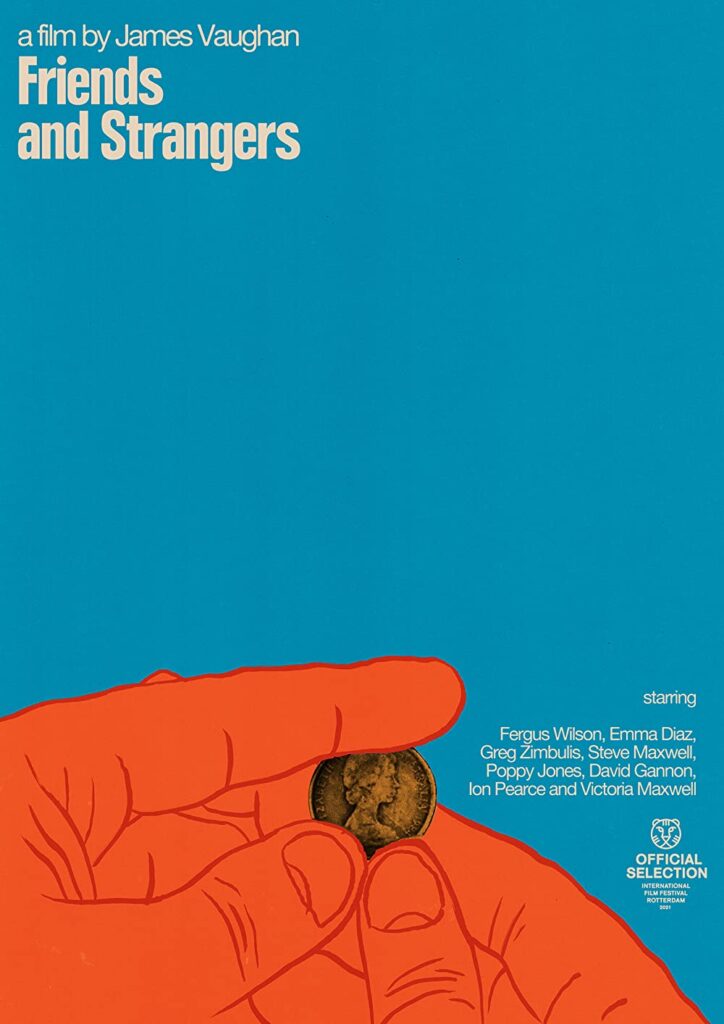
Maybe it’s partly that experience of some of those spaces, but also the feeling of a profound experience. Whether or not it is, is a whole other thing as a white person here. But the feeling of profound experiences in national parks and some of our places that have been preserved and saved from development. And obviously, there’s a whole other discourse around the white approach to preservation of those things which excludes Indigenous people from – or traditionally has anyway, and that’s changing with Indigenous rangers and things like that – but the idea that a landscape is pristine if there’s no people in it is like an overcompensation.
Clearly where we have too many people, stuff is ugly. So the way to keep things good is to keep people out. That dual dichotomy is problematic as well. It’s having some of those experiences rattling around. And often when I’m not finding time to go hiking, looking forward to the next time I get to have some of that time because it’s – yeah, multi-day hikes out in places where the beauty is just jaw-dropping so close often to where we live. Sydney is particularly lucky in that sense that we have north, west and south of the city are just amazing, amazing, natural places of profound natural beauty. The harbour is obviously stunning. And I think we have gotten better at looking after certain parts of our urban environments. The harbour’s much cleaner than it was say twenty years ago, and there’s more emphasis on pollution.
I was in Iraq at the end of last year. My heart just broke. I met some film students because it was for a film festival and was taken to a place that everyone was just raving about [that] it was such a beautiful spot to go and have a picnic. And the ground was covered, completely ankle-deep in plastic bottles and plastic stuff that they just didn’t even see. I guess some of these things are just what you’re trained to see. And after decades of being reminded that litter and pollution is bad, we’ve become very sensitive to that sort of thing. But the broader polluting forces; you hear about ugly housing developments that are made just for a quick buck as cheaply as possible, or multi-lane highways and toll roads being built. These other more macro levels or layers of pollution and ugliness are still being built at an alarming rate.
It’s another thing I was thinking about in terms of what does our country stand for? What are we leaving to future generations? As flawed as the origin of our colony was, the urban buildings from that period are some of the most beautiful we have. The Macquarie era sandstone buildings in the CBD are precious to us as Sydneysiders and going through the generations up to the Harbour Bridge and Opera House and modernist buildings that have been left as a gift to future generations. What is our present generation giving to future generation? Just these hideously ugly apartments. The phenomenon of terrace housing developments which are now so prized by people who get to live in those areas, and they’re such a beautiful way of designing urban space that balances individual needs and also communal space and shared space and efficiency and visual beauty and symmetry and all these kinds of things.
What’s our present generation giving? Aside from the Barangaroo tower for where squillionaires can get penthouses at the top and people can go and gamble in. Some people might want to look at that building. But there’s just not much by way of urban public works that is leaving more for the next generation than it’s taking. That’s something I find really sad. And by putting that in the background of some of the scenes, again not to answer any questions about it, that was something I wanted in the world and the zone of the film.
To create a discussion. I’m curious to rewatch the film with all of this in my mind and dig into it again, in that particular frame of mind. And I’m excited to see where you go as a filmmaker as well, because you’ve got so much you want to say. It’s exciting.
JV: Thank you, Andrew. I’m really happy with the film, but it’s not perfect by any means. And there’s lots of things that I wanted to get in a deeper or better or more interesting way that I’m just not quite satisfied with, watching it back. I’m looking forward to having another crack with future things and I hope that that’s possible. But I feel like it is, you know.
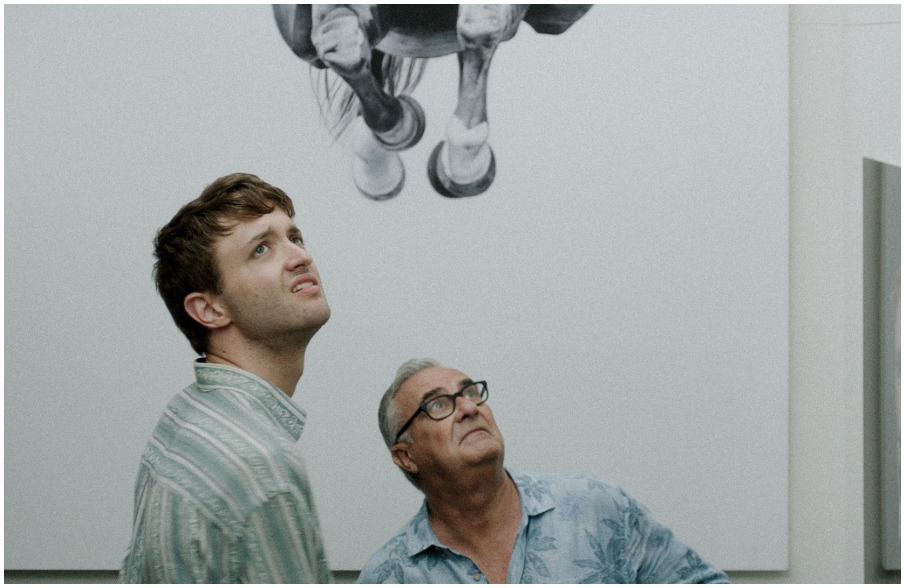
I think a lot of what held back independent filmmakers in previous decades was the cost of everything. And we’re so lucky now with what you can get for – it’s still not cheap – but we shot the film on an Alexa, 2010 ARRI Alexa, which, when that came out, was like more than $100,000 to put it all together. But because it’s old now, we got that for less than $10,000. I edited the film on my iMac. It was like $1,500 or two and a half, I can’t remember, like a 2015 iMac, and ten years earlier or twenty, it just wasn’t possible. The equipment you need to have was like tens and tens of thousands just before you even start thinking about working on stuff. So I think the quality you can get now with the right people in terms of hardware is like – I’m really hoping there’ll be more filmmakers coming through making use of the opportunities that come from that.
That’s certainly the case that I’ve seen with filmmakers like Lucy Coleman, for example, doing Hot Mess for 3000 bucks, and it’s just like this great little film that is done on virtually nothing. I know that she’s gone off to the US to go and do some things and further her career there. Whether that’s something that filmmakers want to do, if they want to create a calling card film and get noticed internationally, great. Or if they want to stay at home and do stuff here, that’s also possible. But it is nice to know that that kind of accessibility nowadays is possible. And of course, on the more extreme scale – and this is a very different world than what you’re operating in – but you’ve got something like Nitram which has been created with the streaming bodies getting behind it rather than the national funding bodies. Screen Australia looked at that and went, “No, we’re not having a part of it.” There is this dichotomy of very, very micro budget realm which is what you’re working in, and then the higher budget realm with Nitram where the streaming services are going, “All right, let’s work outside of the system.” And it’s giving me a bit of hope.
JV: Yeah, no, I agree.
There is a way forward. It’s good.
JV: Not to say that the funding bodies can’t be part of it. I really think they can, and I’m hopeful that I can come up with a project or projects that work for everyone in that way. But it’s like competition in anything. A lot of the time we get sold a sort of false idea of competition. But I think when it’s something like this, it is important. And if you’ve got just one way to get a film made and if you meet the wrong person or get off the wrong start or for whatever the reason, that way is blocked, then if that’s it, it’s devastating and it’s not good for anything or anyone. So, like you said, there’s alternate pathways now, and that can only be a good thing. I’m with you, I’m optimistic.
And I don’t say any of that to disparage the funding bodies at all. There are great films that are made within those realms, of course, and they serve a purpose. It’s just nice to see that I get to watch something like Friends and Strangers or I get to watch something like Hail that exists outside of these areas. You excite me, James.
It’s like when I watched Strange Colours. I didn’t know anything about it. I just went into the cinema, sat down, and watched it. And I was like, “Oh my gosh, what have I just seen?” That’s a jaw-dropping film. I love that film to bits. But you know, it’s these kinds of films that have me excited for Australian cinema.
JV: (laughs) Well, thank you for the support and all the enthusiasm and excitement which is part of the whole ecosystem of the film community, whether it’s people in the cinema or helping fund things or making things. It’s all with excitement.

